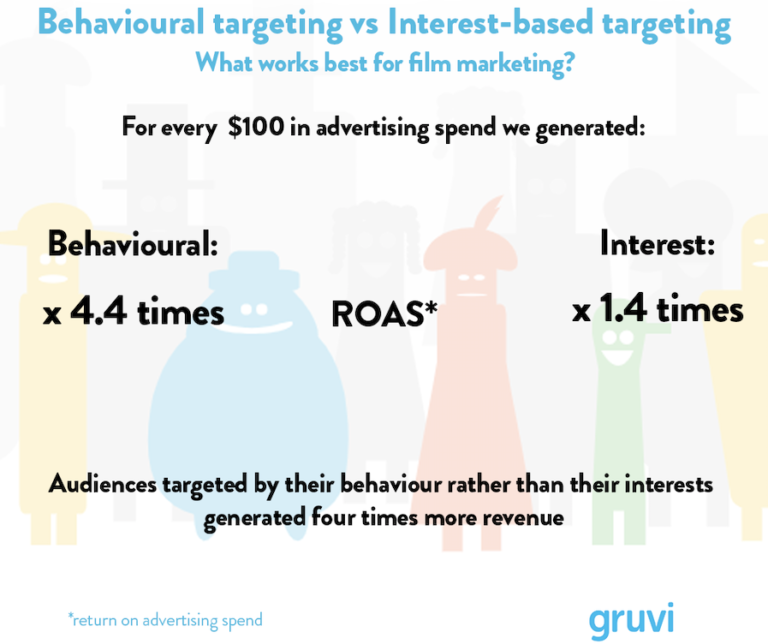Finding Your Audience: What They DO Is More Important Than Who They ARE.

Film distributors (both theatrical and VOD) face one major problem when it comes to social media marketing and targeting ads at their customers: the best behavioural data about those audiences historically belongs to cinemas and VOD platforms, and they are often unwilling to share it.
Behavioural campaigns serve ads to prospects based on their past behaviour while Contextual campaigns try to place ads where “best-fit” potential prospects are going to be browsing. Imagine how much more effective your film advertising would be if you could: Know the relative value of various ad platforms in terms of the actual sales generated – are Facebook or Instagram users more likely to buy?
Minimize wastage - ensure that ads are no longer served to users that had already made a purchase.
Better understand the behaviour of your audience and use that data to test new approaches.
Movie marketing agency Gruvi can now deliver all of the above, thanks to The Audience Programme (aka TAP). This EU-funded initiative builds on the ever-growing pool of data we have taken from the results of almost a decade’s work with both distributors and exhibitors. Continued analysis and interpretation of this data mean we can target users based on their actual behaviour, and identify similar users to create effective lookalike groups.
Here is a recent example of how successful this film advertising approach can be when we promoted two theatrical releases – “Emma” and “KRUDTTØNDEN” – for a week in Denmark (just before the corona lockdown). We ran two sets of ads, one that targeted users identified via our behavioral ad strategy and one that targeted users identified via a more traditional contextual/interest-based strategy:
“KRUDTTØNDEN”
Return On Ad Spend - behavioural ads: X 2.4 Return On Ad Spend - contextual/interest-based: X 1.8
“Emma”
Return On Ad Spend - behavioural ads: X 4.4 Return On Ad Spend - contextual/interest-based: X 1.4
The success of the behavioural ads benefited from targeting users who had visited their local cinema's website once or more over the past six months, and similar lookalike groups.
Email us to learn more and book a free consultancy to discuss how we can offer a digital marketing solution to improve the results of your movie online ad campaigns.


